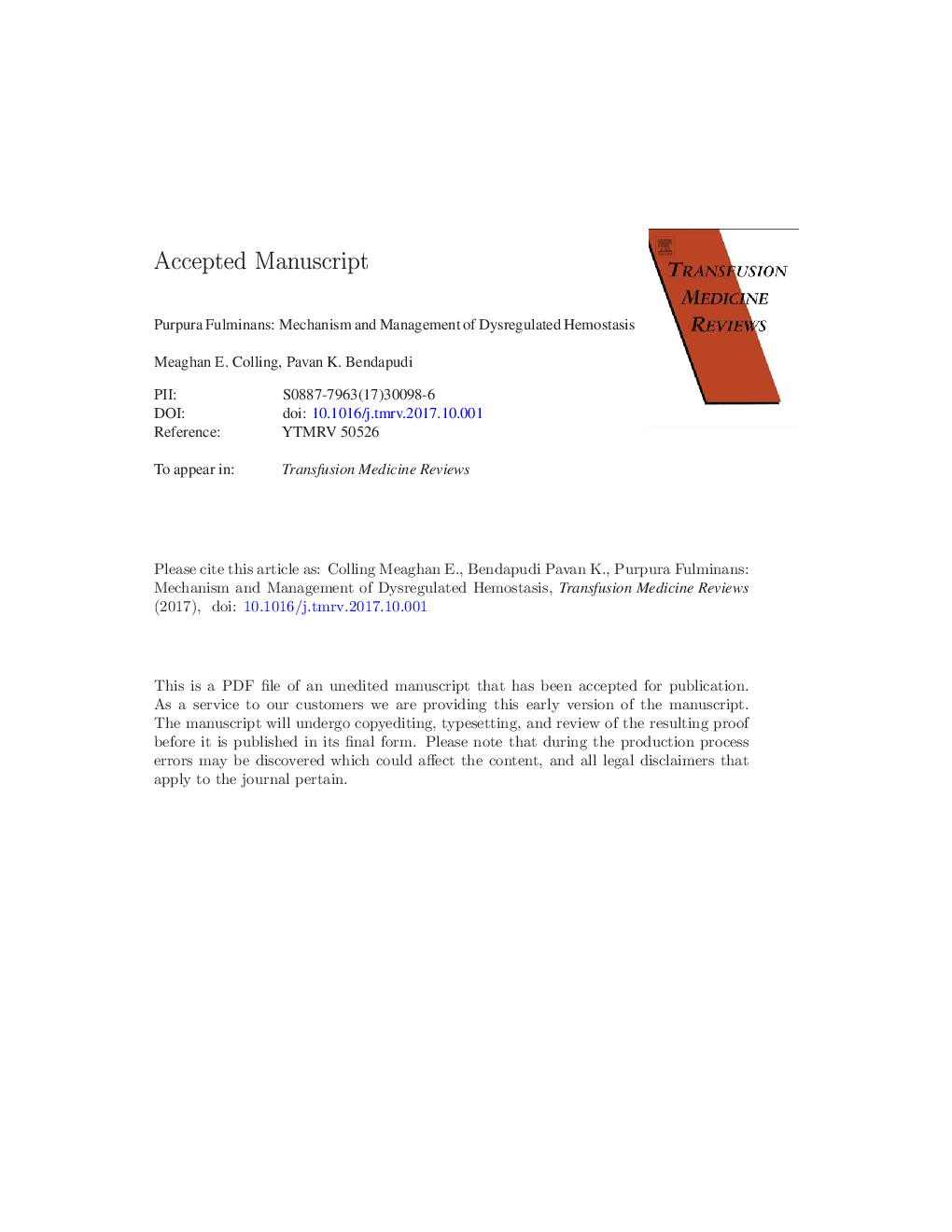| Article ID | Journal | Published Year | Pages | File Type |
|---|---|---|---|---|
| 8735175 | Transfusion Medicine Reviews | 2018 | 21 Pages |
Abstract
Purpura fulminans (PF) is a highly thrombotic subtype of disseminated intravascular coagulation that can accompany severe bacterial, and more rarely, viral infections. PF is associated with an extremely high mortality rate, and patients often die of overwhelming multisystemic thrombosis rather than septic shock. Survivors typically experience amputation of involved extremities and significant scarring in affected areas. Despite the devastating clinical course associated with this hemostatic complication of infection, the mechanism of PF remains poorly understood. Severe acquired deficiency of protein C and dysfunction of the protein C-thrombomodulin pathway as well as other systems that exert a negative regulatory effect on coagulation have been implicated. Management of PF involves treatment of the underlying infection, aggressive anticoagulation, and robust transfusion support aimed at correcting acquired deficiencies in natural anticoagulant proteins. In this review, we address the diagnosis and management of PF with a focus on a rational approach to this condition informed by the available data. Proposed mechanisms underlying the dysregulation of coagulation seen in PF are also covered, and implications for therapy are discussed.
Related Topics
Health Sciences
Medicine and Dentistry
Hematology
Authors
Meaghan E. Colling, Pavan K. Bendapudi,
